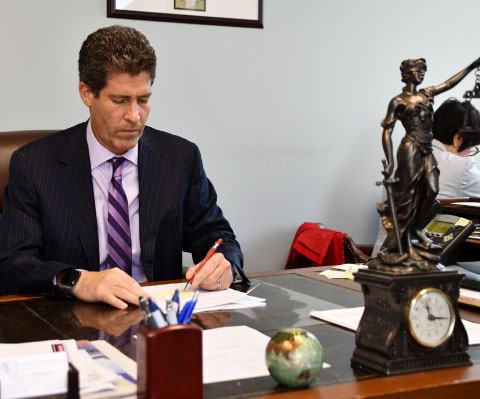$1.1 Million Awarded to Brain Injured Victim
September 16, 2010
McKeever v. Kruger $1.1 Million Award
Date of Award: Nov. 24, 2009.
Court and Case No.: C.P. Montgomery No. 07-23994.
Type of Action: Negligence.
Injuries: Brain injury.
Plaintiff’s Attorneys: Jeffrey A. Nerenberg and Thomas J. Gibbons, Nerenberg Law Associates, Philadelphia.
Plaintiff’s Experts: Keith Bergman, accident reconstruction, Fort Washington, Pa.
Defense Counsel: Cary R. Breon, King of Prussia, Pa.
Defense Experts: Richard Saferstein, toxicology, Mount Laurel, N.J.
Comment:
An arbitrator awarded a man and his wife $1.1 million in compensatory damages for injuries sustained during a motorcycle accident in November 2005.
Plaintiff William McKeever suffered “traumatic” brain injuries after being thrown from his motorcycle.
Both the plaintiffs and defense agreed that McKeever was attempting to avoid contact with defendant Janet Kruger’s motor vehicle at the time of the accident, but they disagreed as to the cause.
McKeever, who had a blood alcohol level of 0.18 at the time of the accident, argued it was Kruger’s “inattentive driving actions” that caused the accident. Kruger responded by arguing McKeever’s intoxicated state was the “proximate cause” of the accident, according to an arbitration memorandum.
McKeever swerved his motorcycle to avoid hitting Kruger between 6:30 and 7 p.m. Nov. 6, 2005.
Kruger was making a left-hand turn out of a restaurant parking lot onto Easton Road near Limekiln Pike in Cheltenham Township, Pa. McKeever was traveling north on Easton Road.
According to plaintiffs’ pre-arbitration memorandum, an accident reconstruction expert determined that Kruger had failed to yield the right of way and that she had “reasonable, available, sufficient and unobstructed sight distance and time to observe … McKeever and avoid the accident.”
Had Kruger been “reasonably attentive,” the expert continued, the accident could have been avoided, according to plaintiffs’ pre-arbitration memorandum.
Kruger, though, argued that more than half her vehicle was in the roadway by the time McKeever approached.
The plaintiff should have made a move to avoid Kruger’s vehicle earlier, because there were no distractions on the road, the defendant argued.
Kruger further argued that evidence suggested McKeever’s intoxicated state weighed heavily in the cause of the accident and supported the argument with testimony from a toxicology expert.
That expert opined that McKeever’s intoxication “must be considered the proximate cause leading to the occurrence of his vehicular accident,” according to defendant’s pre-arbitration memorandum.
McKeever responded to the argument in a motion in limine, seeking to exclude evidence of the alcohol.
It was inadmissible, McKeever argued, because his recklessness or carelessness was not at issue.
McKeever was 40 years old at the time of the accident and was not wearing a helmet. He owned two bars.
According to plaintiffs’ pre-arbitration memorandum, McKeever was knocked unconscious at the accident scene and taken to a local hospital. He suffered a non displaced skull fracture with epidural, subdural and subarachnoid hemorrhages, along with neck, back and rib pain.
McKeever suffered from “extreme memory loss, speech difficulties and a severe impairment of the ability to understand spoken or written words,” according to plaintiffs’ pre-arbitration memorandum.
A month after the accident, McKeever began more than a year of rehabilitation at an outpatient facility to relearn math, spelling and the ability to follow instructions, according to plaintiffs’ pre-arbitration memorandum. McKeever also suffered from increased anxiety.
Michael C. Shields, the attorney who arbitrated the case, noted in his award that the accident was caused “solely by the negligence of Defendant Janet Kruger.” He cited the “persuasive testimony” of McKeever’s wife and medical evidence in his decision to award damages.

